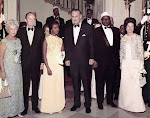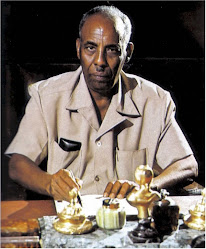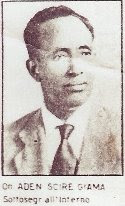 The author of several past Proceedings articles from hot spots around the world files this report from Mombasa.
The author of several past Proceedings articles from hot spots around the world files this report from Mombasa.For Somali pirates, 2008 was a bumper year. In more than 100 major documented attacks, pirates seized approximately 40 large commercial vessels in the Indian Ocean and the Gulf of Aden.
Several merchant ships and their crews are still being held in pirate enclaves, but others have been ransomed back to their owners for an average price of $1 million. In January, the owners of the MV Sirius Star, a brand-new tanker with a load of crude oil valued at $100 million, paid $3 million to secure the release of the tanker and her 25 crew members. And in early February, the owners of the MV Faina, laden with armored vehicles and other weapons, shelled out an estimated $3.2 million for the release of the ship and her crew. The United Nations estimates that pirates raked in around $20 million last year, this in a country where 25 cents can buy dinner.
The world's navies have mobilized in an attempt to defeat piracy at sea. Around two dozen warships from the United States, the United Kingdom, France, Russia, India, China, and other countries, organized in several distinct task forces, patrol the roughly million square miles of ocean where pirates are operating. In January, the U.S. Navy reorganized its own counter-piracy efforts, establishing a new combined task force, CTF-151, dedicated solely to combating pirates. And at press time, Turkey had committed to sending a frigate to the Gulf of Aden for that purpose. At-sea interception is the most obvious countermeasure for piracy and where the world has focused its resources.
Hitting Them Where They Live
But a permanent solution to the piracy problem requires "something happening on land," according to Martin Murphy, an analyst with the Center for Strategic and Budgetary Assessments, in Washington, D.C. With Somalia's 18-year-old civil war still raging, some say even escalating, there is little hope of resolving the piracy crisis at its source. But pirate networks have another land-based weakness, one that's perhaps being neglected: in Kenya, where pirate chiefs base important parts of their operations. As long as Somalia itself remains inaccessible to law-enforcement efforts, Kenya is where the world must begin rolling back the land-based organizations that support pirates.
While small gangs of armed men riding in fast skiffs are the dramatic face of piracy, these men are just the foot soldiers of sophisticated criminal enterprises in which major infrastructure is land-based. The most successful pirates-those with the weapons and intelligence to pull off attacks on supertankers hundreds of miles from land-are employed by wealthy criminal bosses, many of them expatriates, and draw on information provided by paid sources inside key Kenyan maritime agencies.
"From what I can see, this has become a business," Abubaker Omar??? profiling apologist Abukar Arman ...said of pirates. Omar is the head of Kenya's large seafaring union, based in Mombasa, the country's major port. His constituents include thousands of seafarers, many of whom have had encounters with pirates during their careers, and some of whom have even been kidnapped by pirates and eventually freed.
Organized Crime
Omar described pirate networks as something akin to the West's mafia. Resources are concentrated in the hands of a few senior bosses, each employing "capos" commanding bands of low-ranking pirates. The capos, Omar said, are former Somali army soldiers from before the civil war, when Somali troops trained in the Soviet Union. The capos and their subordinates operate from pirate enclaves in northern Somalia, especially in the town of Eyl puntland .....more .http://www.usni.org/magazines/proceedings/story.asp?STORY_ID=1813.



.jpg)











No comments:
Post a Comment